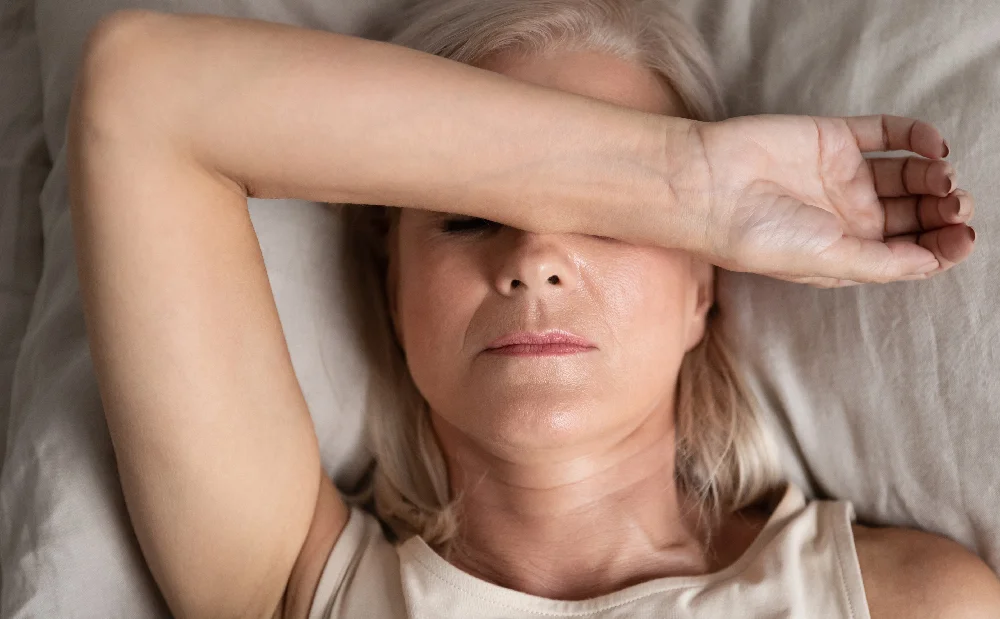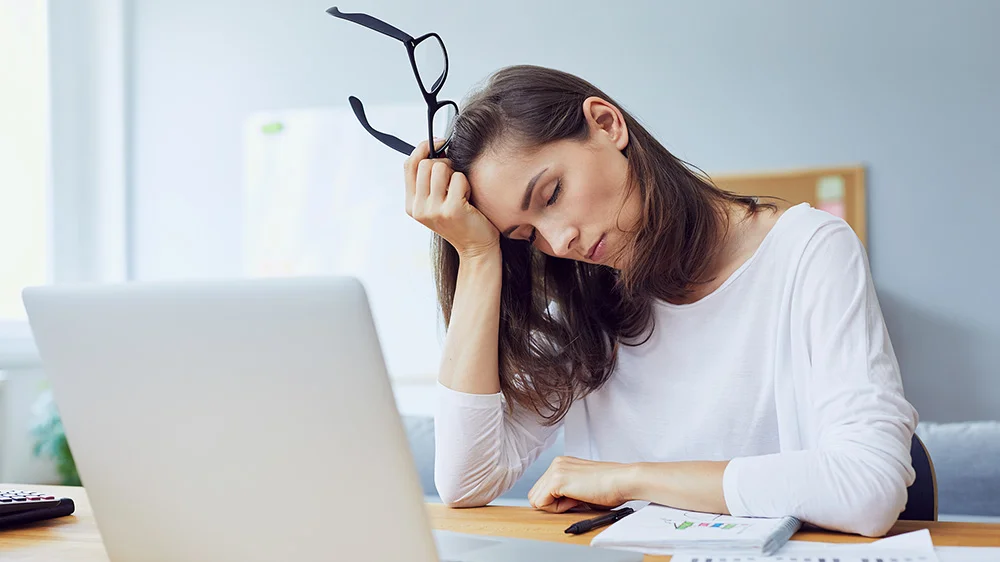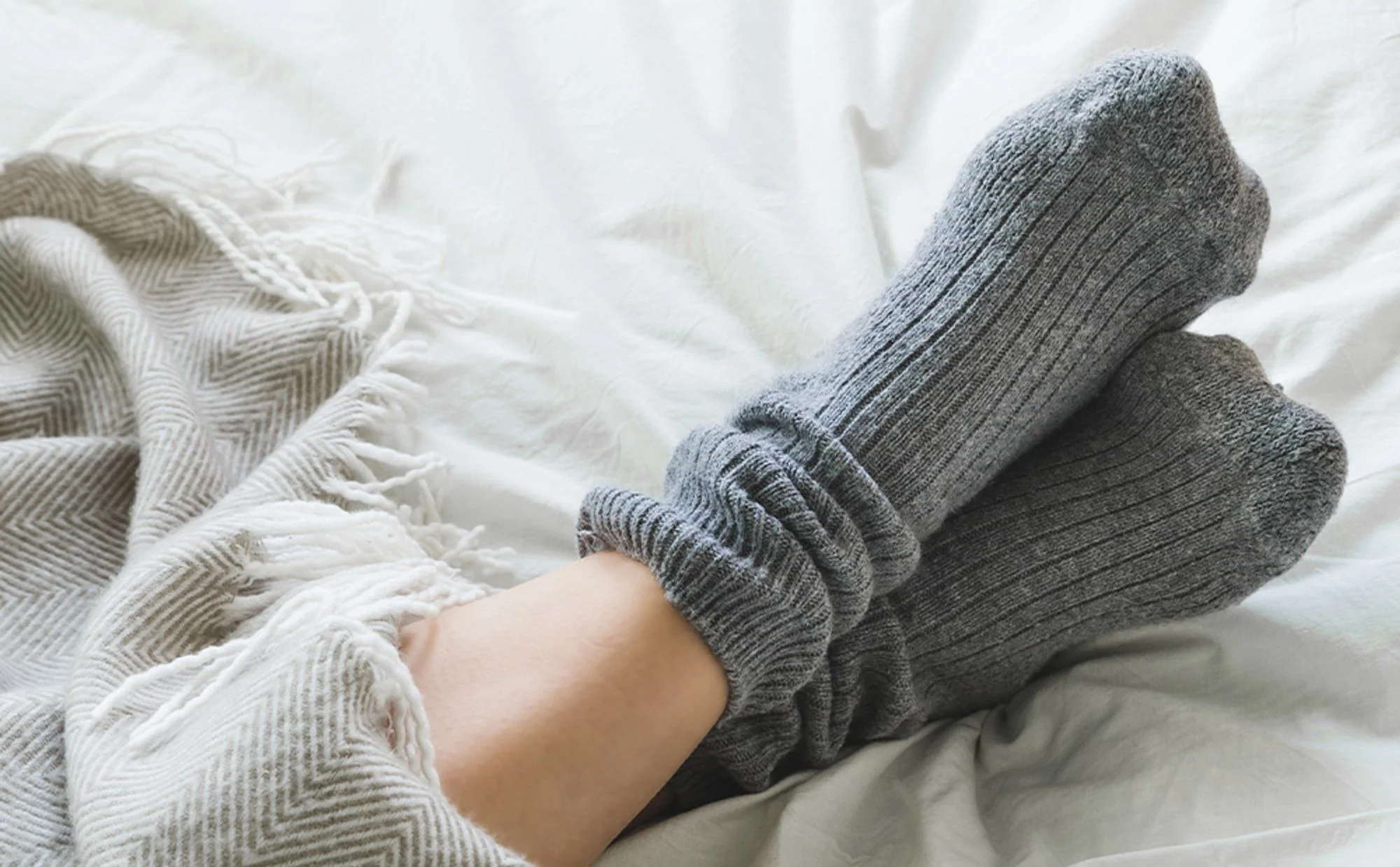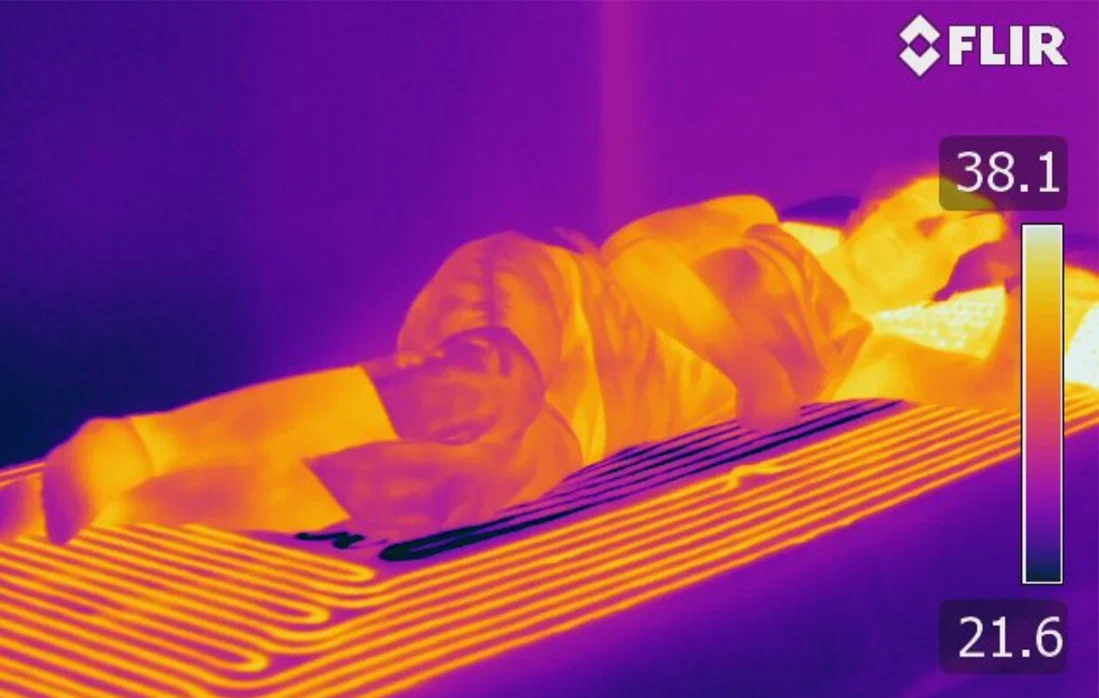
Menopause is getting somewhat of a makeover, as millennials head into the long dreaded phase that their mothers and grandmothers had to suffer through with little help. Along with that has come a surge in research and analysis of what women really go through during this transition out of the fertile years, including just how widespread some of the most difficult symptoms are.
This includes sleep disruptions, at least for half of women, according to a new study from the American Academy of Sleep Medicine (AASM). The survey found that 50 percent of women between the ages of 45 and 64 experience sleep disruption because of menopause. (1) The survey was conducted online and was completed by 2,006 adults living in the United States. Survey participants were asked how often they experienced disrupted sleep due to menopause. Response options included: sometimes, often or always; always; often; sometimes; rarely; never or I don’t know.
Out of all respondents, a total of 32 percent said they sometimes, often, or always were woken due to menopause. This builds on previous research recently conducted to further understand the impact of menopause. A 2024 Gallup poll found 36 percent of women said they got enough sleep. (2) A 2022 study found that 35-60 percent of postmenopausal women experienced sleep disorders. (3) Finally, a 2023 global study found that things aren’t much better post-menopause — that 51.6 percent of postmenopausal women had sleep disorders. (4)
So what’s happening during menopause to cause these disruptions in sleep, one of our most essential luxuries in life? Plenty. Changing hormone levels result in night sweats, hot flashes, changes in circadian rhythms, and more, according to Sleepopolis’s Ultimate Guide to Menopause and Sleep. That pesky sweating comes from the body trying to cool itself down.
Women also have an increased risk of sleep apnea during and after menopause, with hormones again to blame. Estrogen is responsible for keeping your throat muscles strong, and progesterone supports breathing including at night. So, with changes in those hormones comes an increased chance of airway collapse and nighttime breathing issues. Don’t wait to reach out to your doctors if that becomes an issue, along with any other bothersome symptom.
The age old question getting more traction now is what can women do about this. An experimental pill to improve sleep and reduced symptoms of menopause is on the horizon, as are a plethora of hormone replacement options. In addition, exercise and low stress can help make menopause a bit more bearable, and women can actively avoid hot flash triggers including tight clothing, smoking and drinking, caffeine, hot environments, and spicy food.
Most importantly, don’t be afraid to reach out to doctors when these symptoms affect your life, including your sleep. Sleep debt and sleep deprivation are linked to a slew of additional problems you don’t want to have to deal with on top of night sweats and hot flashes.

Americans, Especially Women Under 50, Experiencing Record Rates of Sleep Loss and Stress: New Poll

Can This Swiss Brand’s Science-Backed Sleepwear Really Cure Everything From Insomnia to Hot Flashes?

Could a Foot Massage Before Bed Significantly Improve Your Sleep?

Could This Temperature-Controlled Mattress Help You Fall Asleep Faster?
Sources
1. AASM; “AASM Sleep Prioritization Survey: Sleep Disruption – Menopause,” American Academy of Sleep Medicine; https://aasm.org/wp-content/uploads/2024/09/sleep-prioritization-survey-2024-sleep-disruption-menopause.pdf; September 2024.
2. Fioroni, Sarah; Foy, Dan; “Americans Sleeping Less, More Stressed,” Gallup; https://news.gallup.com/poll/642704/americans-sleeping-less-stressed.aspx; April 15, 2024.
3. Tandon, Vishal R.; Sharma, Sudhaa1; Mahajan, Annil1; Mahajan, Akhil2; Tandon, Apurva3. Menopause and Sleep Disorders. Journal of Mid-life Health 13(1):p 26-33, Jan–Mar 2022. | DOI: 10.4103/jmh.jmh_18_22
4. Salari, N., Hasheminezhad, R., Hosseinian-Far, A. et al. Global prevalence of sleep disorders during menopause: a meta-analysis. Sleep Breath 27, 1883–1897 (2023). https://doi.org/10.1007/s11325-023-02793-5

























